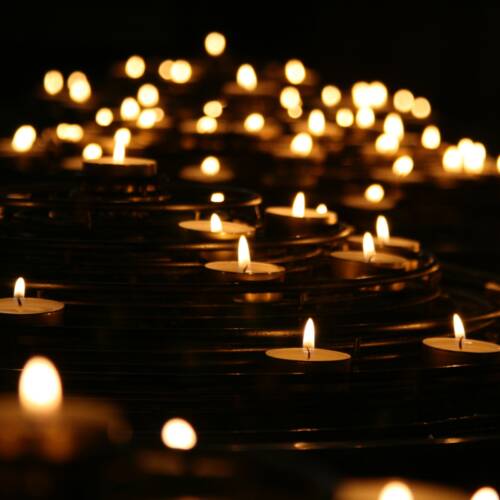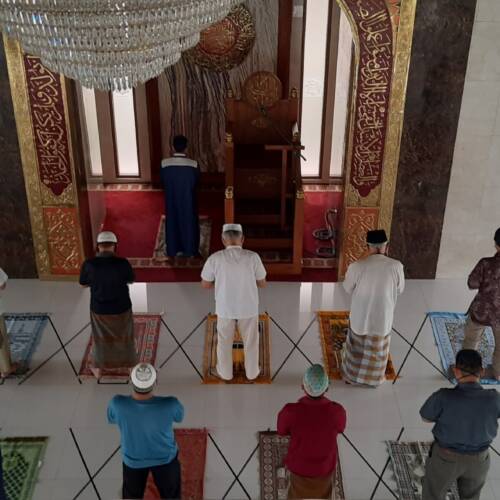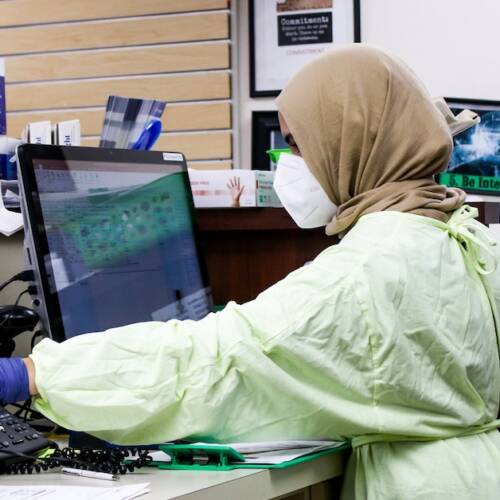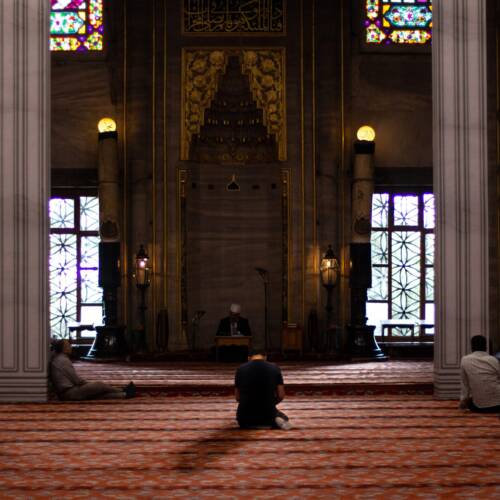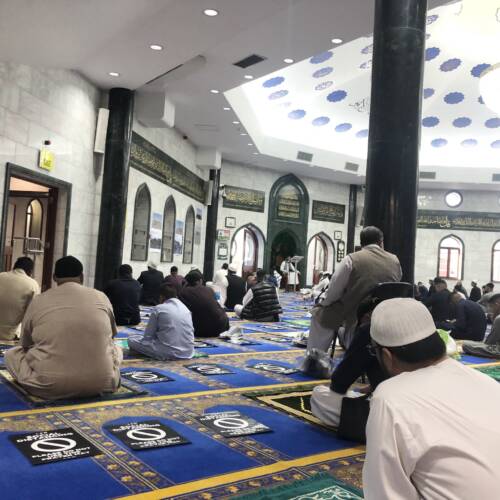
Religious Congregations to be Suspended Amid Government Warnings Against Large Gatherings
18 Mar 2020The impact of coronavirus on communities across the world hasn’t been gentle and now mosques in the UK are preparing for a full suspension of congregational prayers. Countries elsewhere have already taken measures.
The Muslim Council of Britain (MCB) and the British Islamic Medical Association (BIMA) are currently informing leaders of mosques around the country of the appropriate procedures in dealing with the outbreak of the virus, against maintaining the integrity of their religious community. These procedures have now moved into the full suspension of prayer services as advised.
Plans from the council regarding how to deal with the suspension have already been communicated to imams. This includes plans to communicate to attendees via social media, to shorten programmes, fundraise online and to announce temporary suspension of congregational activities.
Following governmental advice to cease all non-essential contact, the MCB has had little choice but to make the recommendation for the safety of worshippers and the community in general. MCB secretary general Harun Khan stated that “with the increasing rate of transmission and number of deaths, medical and scholarly advice all points towards the limitation of social contact as the key towards reducing the spread.”
He went further in specifying that Friday prayers, which draw large crowds including the elderly, will particularly be suspended. Weddings and social events will also not go ahead.
According to health experts, older people and individuals with underlying health conditions are at the most risk of becoming majorly ill from receiving the virus. The MCB suggested that people should reach out to those who are most vulnerable and ensure that they are contacted and assisted.
Elsewhere around the world, mosques have been closed in a collective effort to minimise the spread of Covid-19. Saudi Arabia for example, announced on Wednesday that mosques would no longer be open for daily prayers or Friday congregations. The country has now confirmed over 150 cases of the virus with its travel ban also causing worries for Muslims around the world hoping to enter the country for the pilgrimage to Mecca.
The Australian National Imams Council issued a fatwa on Wednesday, urging Australian Muslims to pray at home on Friday. Their statement maintained that “belief in the decree of Allah does prevent a person from taking by the means of prevention of disease.”
Fears of the spread of Covid-19 has also seen the remembrance service of last year’s terror attack in Christchurch being cancelled. Muslim communities in Kuwait, the United States, Singapore and Germany have also closed their mosques.
Whilst Muslim organisations in the UK were slower to announce similar measures, at present they have now stated that the “the obligation to perform Friday prayers in mosque congregations can be temporarily lifted.”
With Ramadan starting soon in late-April, it is unclear the extent to which the coronavirus will have its impact, but UK mosques have been told to prepare for the suspension of iftar programmes and taraweeh (a daily evening prayer performed by some Muslims during Ramadan).
In Indonesia, the State Intelligence Agency (BIN) reported that the virus will hit its peak in the country in May, which coincides with Ramadan. This differs with other countries, with experts in the UK predicting the virus will reach its peak inside its borders in 130 days.
Other religious services in churches have been halted as well in an unprecedented move, with live-streamed sermons being the alternative for most worshippers. Church gatherings have been suspended and other rituals such as the kissing of the cross and washing one’s feet during Easter celebrations have been announced to not be taking place this year.
With over 200,000 confirmed cases and a death toll exceeding 8,000, the World Health Organisation (WHO) has now declared the outbreak a pandemic. Europe has now been declared the new epicentre of the virus. Increased awareness and preventative measures must now be implemented if communities want to see a return to normality.







